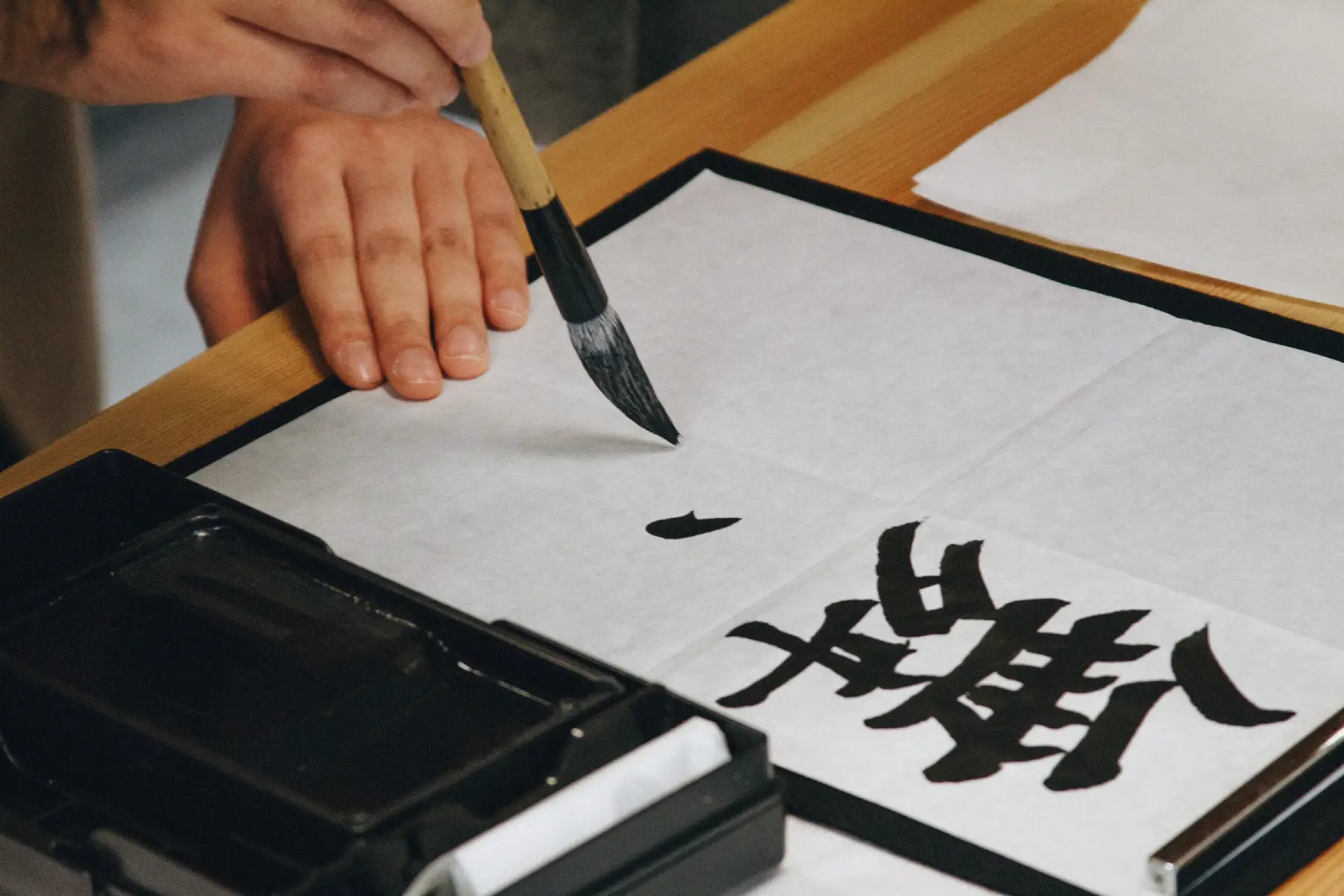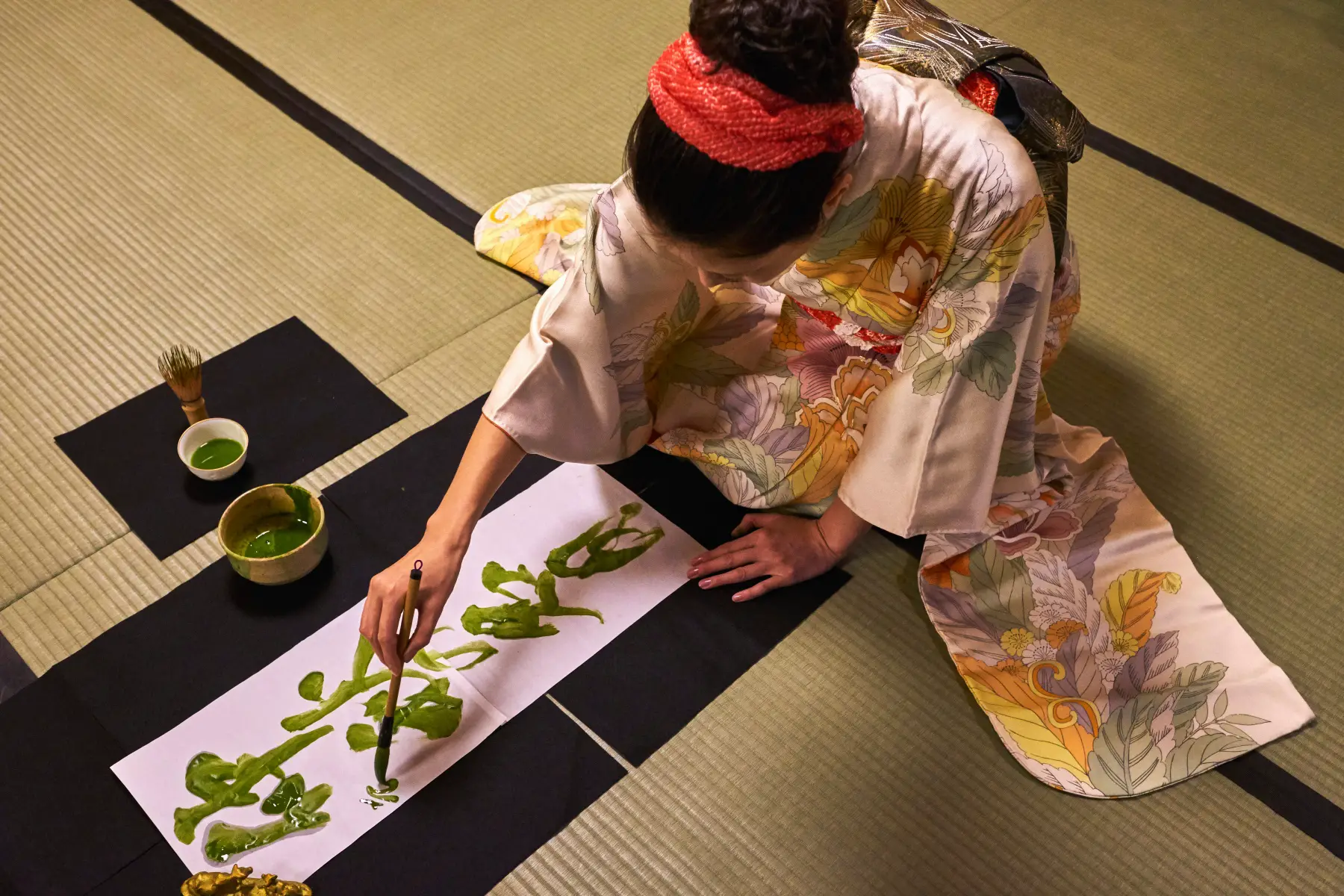If you have just moved to Japan, one of the best ways to integrate into local culture is to speak Japanese. However, before you can start chatting at length with new-found friends and locals, you need to tackle what may feel like climbing Mount Fuji: step by step, start learning the language.
To help you kickstart that language-learning journey, read on for more information on learning Japanese:
Why learn Japanese?
Over 125.4 million people speak Japanese. Of course, most of these are native Japanese speakers. However, with over three million internationals living in Japan as of 2022, the amount of Japanese speakers is steadily growing.
The length of time it takes to learn Japanese depends on various factors. This includes the learner’s native language, their level of commitment, and the intensity of their language-learning program.

According to the US Foreign Service Institute, which provides language training to US diplomats, Japanese is classified as a Category IV language. This means it is one of the most difficult languages for English speakers to learn. It typically takes a whooping 2,200 hours of study for an English speaker to reach a professional working proficiency level in Japanese.
Although learning Japanese can seem intimidating, there are countless benefits. Japan has the third-largest economy in the world and is home to many international companies. Mastering the language – or even simply coming to grips with it – can therefore benefit you if you’re interested in pursuing business opportunities in Japan.
Knowing Japanese can also enhance your travel experience by allowing you to communicate with locals, understand street signs, and read menus. This is perfect for exploring Japan’s delicious cuisine and rich cultural heritage, as well as navigating its stunning landscapes.
If you’re looking to study abroad, Japan is home to some of the world’s top universities. While some universities in Japan offer courses in English, many do not. Learning Japanese will therefore help you pursue academic research and navigate the Japanese education system with greater ease.
Additionally, Japanese anime, manga, video games, and music have a global following, and many fans will appreciate these forms of entertainment better if they understand them in their original voice.
Finally – as is the case with any other language – learning Japanese can be a rewarding, personal journey that expands your understanding of the world. It can open up new avenues of communication and connection with people from different backgrounds.
Learning Japanese before moving to Japan
Only a small percentage of the Japanese population can and will speak English, making even the most basic communication for newcomers challenging. Therefore, learning Japanese before moving to Japan can be incredibly beneficial, especially if you plan on living in the country for an extended period.
Putting in extra study time before your move can also help you understand Japanese social etiquette. This will make it easier to adjust to living in Japan and help you avoid cultural misunderstandings.

If you plan on working in Japan, knowing Japanese can also open many doors. Many employers in Japan require at least basic Japanese proficiency for their employees, especially in customer-facing roles.
International Japanese-language schools
There are many international Japanese language schools outside Japan where learners can study the language. Check out the following schools to get started:
- Go! Go! Nihon: A Japanese language school placement service that has partner schools in various countries, including South Korea and the United States
- The Japan Foundation (国際交流基金): A Japanese government-affiliated organization that promotes cultural exchange and offers Japanese language courses at all levels. It has institutes based in Australia, Brazil, China, Germany, India, Indonesia, Italy, Mexico, Russia, South Korea, Thailand, the United Kingdom, and the United States.
- The Japanese Language Institute (日本語研究所): Also known as the Nichibei Kaiwa Gakuin, this is a Japanese language school located in Osaka, Japan, with branches in various countries, including the United States, Canada, and Australia
These schools also offer online language courses and resources if you wish to study remotely.
Learning Japanese in Japan
Language schools
If you prefer to start learning Japanese once you arrive in Japan, you’ll find plenty of language schools to help you achieve your goal. That way, you can head directly into town and practice your new skills at the local restaurant or hairdresser.
Here are some of Japan’s many language schools:
- KCP International Japanese Language School: Located in Tokyo, this school offers intensive Japanese language courses for students who want to improve their language skills quickly. They also provide cultural activities to help students immerse themselves in Japanese culture.
- Kyoto University of Foreign Studies (京都外国語大学): Offers Japanese language courses for international students, as well as courses on Japanese culture, history, and literature
- Hokkaido Japanese Language Academy (北海道日本語学院): Based in Hokkaido, this school offers language courses for all levels. They also provide courses on Japanese culture, including tea ceremonies, calligraphy, and flower arrangement.
- Tokyo International Japanese School (東京国際日本語学院): Offers Japanese language courses for students of all levels, from beginner to advanced. It also provides courses on Japanese culture and history.
- Yamasa Institute (YAMASA言語文化学院): Alongside language courses, this Aichi-based school also offers homestay programs for students who want to experience Japanese culture firsthand
Language lessons offered by the Japanese government
The Japanese government also offers various programs and resources for individuals interested in learning Japanese in Japan.
The Japan Foundation has branches in Tokyo, Osaka, and Kyoto and provides a range of paid courses for students of all levels.
Japan International Cooperation Center (JICE –日本国際協力センター) is a government-affiliated organization that offers Japanese language courses and other programs for international students and professionals. They offer language courses at their Tokyo Language Education Center and other locations throughout Japan.

The Ministry of Education, Culture, Sports, Science and Technology (MEXT – 文部科学省) offers the Japanese Government Scholarship for international students who want to study in Japan. This scholarship covers tuition fees, local living expenses, travel expenses, and Japanese language education.
Many local governments in Japan offer language courses for foreign residents. These programs vary by location, so make sure to check with your municipality to find out what courses are available in your area.
Universities in Japan also offer Japanese courses for international students. These classes are often part of degree programs ranging from beginner to advanced levels. Check with universities near you to find one that aligns with your interests and needs.
Learning Japanese for free
Learning Japanese for free in Japan can be challenging, as most language schools and programs require tuition fees. However, with a bit of research, you will be able to find resources and options that allow you to tackle the challenge without breaking the bank.
Many local communities in Japan offer volunteer language exchange programs, where participants can meet with native Japanese speakers and practice speaking Japanese for free. Local community centers or international exchange organizations usually arrange these programs.
Some public libraries in Japan offer free Japanese language classes and resources, such as books, audiobooks, CDs, and DVDs.
Attending local community events can provide an opportunity to practice speaking Japanese for free, while also meeting new people and learning more about Japanese culture.
Learning Japanese online
Learning Japanese online has become increasingly popular in recent years, and many resources are available for students of all levels.
You’ll find plenty of international schools that offer online lessons to help you build up your Japanese language skills. Some options include:
- Go! Go! Nihon: One-on-one private lessons at your convenience
- Shinjuku Japanese Language Institute (新宿日本語学校): Offers courses for different levels in small groups or one-on-one
- Tokyo Central Japanese School (TCJ – 東京中央日本語学院): A wide variety of classes for both adults and children
Many universities and language schools also offer online Japanese courses ranging from beginner to advanced. These courses often use video lectures, quizzes, and discussion forums to help students learn the language.
Other handy online resources
Many other handy online Japanese learning resources can help you improve your skills and gain confidence in speaking, reading, and writing Japanese. Here are some options:
- Anki: This flashcard app uses spaced repetition to help you memorize Japanese vocabulary and kanji. Many shared decks available for free cover various topics and difficulty levels.
- Jisho: An online Japanese-English dictionary that allows you to search for words in Japanese and find their meanings, example sentences, and related words
- NHK Easy Japanese (NHKやさしい日本語, NHK Yasashii Nihongo): A website that provides news articles and audio recordings in simplified Japanese
- WaniKani: A subscription-based website that uses mnemonics and spaced repetition to help you memorize over 2,000 kanji
- Language-learning podcasts: Many free podcasts offer language lessons, conversation practice, and cultural insights. Some examples include JapanesePod101 and Bilingual News.
Computer or smartphone apps that teach Japanese
Alongside a course, you can also use your phone or computer to access plenty of free and paid Japanese learning programs. Some of the most notable include:
- Drops: Learn Japanese by using this effective app for five minutes per day
- Duolingo: One of the most well-known language-learning apps, offering interactive lessons and a playful cast of characters
- Pimsleur Comprehensive: An audio-based language-learning program focusing on teaching conversational Japanese through repetition and interactive dialogue
- RocketLanguages: A language learning program that combines interactive audio lessons, grammar and vocabulary exercises, and cultural notes to help learners develop their listening, speaking, reading, and writing skills in Japanese
- Rosetta Stone: A popular language learning program that uses a visual and immersive approach to teach Japanese through pictures, audio, and speech recognition
You can also download a language exchange app that allows you to video chat with native speakers and practice speaking and listening skills in real-time. Some options include:
Learning Japanese outside the classroom
If you’re looking to deepen your understanding of Japanese beyond the classroom, a great place to start is Japanese entertainment. Whether it’s watching Japanese TV shows or movies, listening to Japanese music, or reading Japanese books or news articles, you’ll be exposed to the language and the culture, too.
You can also join a language-learning community, such as a Japanese language café or club, to connect with other learners and practice your language skills in a supportive and social environment.

If you are a sports fan, you can join a sports group and bond with your teammates in Japanese. Otherwise, look for a social group that matches your interests – that way, you can learn about your passion in Japanese.
Take up the opportunity to interact with your neighbors, local shop owners, and your children’s teachers and friend’s parents. You can also host playdates with your child’s new friends to pick up on basic Japanese vocabulary.
Official language examinations and qualifications in Japan
If you are moving to Japan, you may need to take an exam to show your level of Japanese language proficiency. The most common nationally recognized proficiency tests are:
- Business Japanese Proficiency Test (BJT): Measures the practical communication skills required in business situations. The test evaluates negotiating, presenting, and writing business reports.
- Japanese Language Proficiency Test (JLPT): This is the most well-known test for Japanese language learners. It assesses the Japanese language proficiency of non-native speakers, from beginner to advanced levels.
- Test of Practical Japanese (TOPJ): Also known as the J-Test, this assesses practical Japanese proficiency in real-life situations, such as ordering food, asking for directions, and making appointments
JLPT is often required by universities, employers, and immigration authorities in Japan to assess the Japanese language proficiency of non-native speakers. Many companies also require JLPT certification for employees who need to communicate with Japanese clients.
BJT is recognized by major Japanese companies and used for employee evaluations and promotions. TOPJ, on the other hand, is often used by language schools and universities as an assessment tool.

You can take the JLPT, BJT, and TOPJ examinations at designated test centers in Japan and other countries. You can register for JLPT, BJT, and TOPJ examinations online through the official websites. The registration period depends on the test and location.
If you take the exams in Japan, the JLPT fee is ¥7,500, the BJT fee is ¥7,000, and the TOPJ fee ranges from ¥3,600 to ¥4,500 (all as of 2023). Fees vary if you take the test in another country.
Alternatively, many language schools and universities in Japan offer Japanese language courses and provide certification upon completion. Some well-known institutions are Tokyo International University (東京国際大学), Waseda University (早稲田大学), and Sophia University (上智大学).




